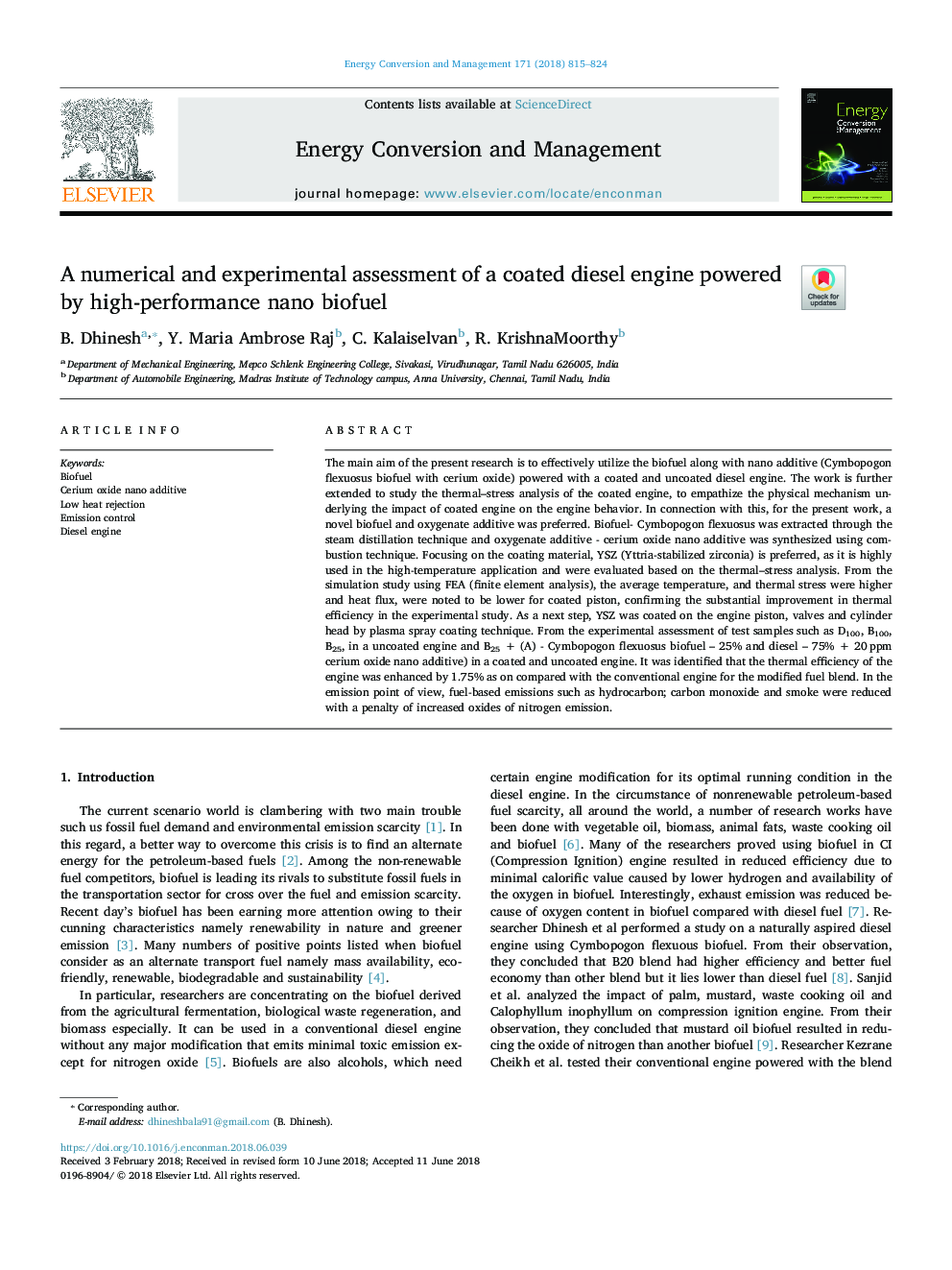| کد مقاله | کد نشریه | سال انتشار | مقاله انگلیسی | نسخه تمام متن |
|---|---|---|---|---|
| 7158071 | 1462791 | 2018 | 10 صفحه PDF | دانلود رایگان |
عنوان انگلیسی مقاله ISI
A numerical and experimental assessment of a coated diesel engine powered by high-performance nano biofuel
ترجمه فارسی عنوان
یک ارزیابی عددی و تجربی از یک موتور دیزل پوشش داده شده توسط نانو سوخت زیستی با کارایی بالا
دانلود مقاله + سفارش ترجمه
دانلود مقاله ISI انگلیسی
رایگان برای ایرانیان
کلمات کلیدی
سوخت های زیستی، افزودنی نیکل اکسید سریم، رد گرما کم کنترل انتشار، موتور دیزل،
موضوعات مرتبط
مهندسی و علوم پایه
مهندسی انرژی
انرژی (عمومی)
چکیده انگلیسی
The main aim of the present research is to effectively utilize the biofuel along with nano additive (Cymbopogon flexuosus biofuel with cerium oxide) powered with a coated and uncoated diesel engine. The work is further extended to study the thermal-stress analysis of the coated engine, to empathize the physical mechanism underlying the impact of coated engine on the engine behavior. In connection with this, for the present work, a novel biofuel and oxygenate additive was preferred. Biofuel- Cymbopogon flexuosus was extracted through the steam distillation technique and oxygenate additive - cerium oxide nano additive was synthesized using combustion technique. Focusing on the coating material, YSZ (Yttria-stabilized zirconia) is preferred, as it is highly used in the high-temperature application and were evaluated based on the thermal-stress analysis. From the simulation study using FEA (finite element analysis), the average temperature, and thermal stress were higher and heat flux, were noted to be lower for coated piston, confirming the substantial improvement in thermal efficiency in the experimental study. As a next step, YSZ was coated on the engine piston, valves and cylinder head by plasma spray coating technique. From the experimental assessment of test samples such as D100, B100, B25, in a uncoated engine and B25 + (A) - Cymbopogon flexuosus biofuel - 25% and diesel - 75% + 20â¯ppm cerium oxide nano additive) in a coated and uncoated engine. It was identified that the thermal efficiency of the engine was enhanced by 1.75% as on compared with the conventional engine for the modified fuel blend. In the emission point of view, fuel-based emissions such as hydrocarbon; carbon monoxide and smoke were reduced with a penalty of increased oxides of nitrogen emission.
ناشر
Database: Elsevier - ScienceDirect (ساینس دایرکت)
Journal: Energy Conversion and Management - Volume 171, 1 September 2018, Pages 815-824
Journal: Energy Conversion and Management - Volume 171, 1 September 2018, Pages 815-824
نویسندگان
B. Dhinesh, Y. Maria Ambrose Raj, C. Kalaiselvan, R. KrishnaMoorthy,
